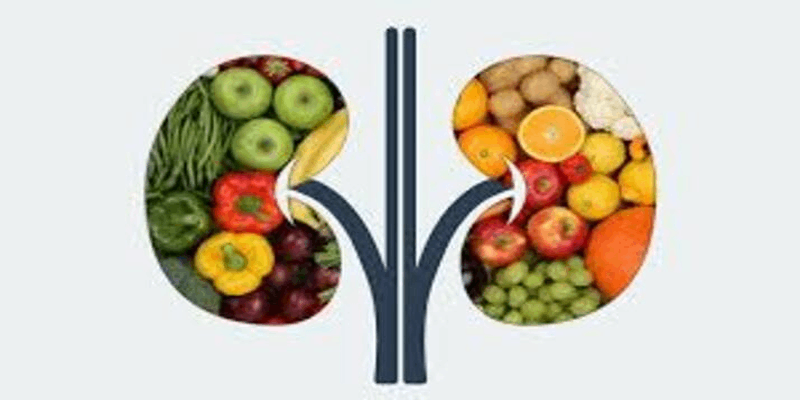
Renal Diet
A renal diet is a specialized diet designed to support kidney function and manage the symptoms of kidney disease. When the kidneys are not functioning properly, they may struggle to filter waste products and excess fluids from the blood, leading to an accumulation of harmful substances. A renal diet helps to reduce the burden on the kidneys by controlling the intake of certain nutrients.
Key Components of a Renal Diet:
-
Protein Management:
- Controlled Protein Intake: In the early stages of kidney disease, a moderate reduction in protein intake may be recommended to reduce the kidneys' workload. However, as kidney disease progresses, protein intake may need to be more strictly limited.
- High-Quality Protein: Emphasize high-quality protein sources, such as lean meats, poultry, fish, eggs, and dairy, while avoiding excessive amounts of protein from processed foods.
-
Sodium (Salt) Restriction:
- Limit Sodium: Sodium can increase blood pressure and cause fluid retention, both of which can strain the kidneys. A renal diet typically involves limiting sodium intake to reduce these risks.
- Avoid Processed Foods: Processed foods, canned goods, and restaurant meals are often high in sodium. Choose fresh, unprocessed foods whenever possible.
- Flavor Alternatives: Use herbs, spices, and salt-free seasonings to add flavor to food without relying on salt.
-
Potassium Control:
- Monitor Potassium Intake: High potassium levels can be dangerous for people with kidney disease, as the kidneys may not be able to effectively remove excess potassium from the blood.
- Limit High-Potassium Foods: Foods like bananas, oranges, potatoes, tomatoes, and spinach are high in potassium and may need to be limited or avoided.
- Choose Low-Potassium Alternatives: Apples, berries, grapes, carrots, and white bread are examples of lower-potassium foods that are often safer for those on a renal diet.
-
Phosphorus Restriction:
- Limit Phosphorus: Phosphorus is a mineral that can build up in the blood when the kidneys are not working properly, leading to bone and cardiovascular problems.
- Avoid High-Phosphorus Foods: Dairy products, nuts, seeds, chocolate, and colas are high in phosphorus and should be limited.
- Phosphate Binders: Some people may need to take medications called phosphate binders with meals to help prevent the absorption of phosphorus from food.
-
Fluid Management:
- Monitor Fluid Intake: For some individuals, especially those on dialysis, fluid intake may need to be controlled to prevent fluid overload, which can cause swelling, high blood pressure, and heart problems.
- Limit High-Fluid Foods: Foods with high water content, such as soups, ice cream, and fruits like watermelon, may need to be consumed in moderation.
-
Calcium Management:
- Balanced Calcium Intake: Calcium intake needs to be carefully managed, as both too much and too little calcium can be problematic. This often involves working closely with a healthcare provider to ensure proper balance.
Additional Considerations:
- Individualized Plan: A renal diet should be personalized based on the individual's stage of kidney disease, other health conditions, and nutritional needs. It is important to work with a registered dietitian or healthcare provider to develop a diet plan that is appropriate for the specific situation.
- Monitoring Blood Levels: Regular monitoring of blood levels of potassium, phosphorus, calcium, and other relevant nutrients is important to adjust the diet as needed.
- Energy Needs: People with kidney disease may need to adjust their calorie intake to maintain a healthy weight, especially if protein intake is restricted. Healthy fats and carbohydrates can provide necessary calories without overloading the kidneys.
Foods Often Recommended on a Renal Diet:
- Low-Potassium Vegetables: Cabbage, cauliflower, cucumber, and peppers.
- Low-Potassium Fruits: Apples, berries, cherries, and grapes.
- Low-Sodium Foods: Fresh, unprocessed meats, rice, pasta, and unsalted snacks.
- Controlled Protein Sources: Small portions of lean meats, poultry, and fish.
- Low-Phosphorus Foods: White bread, rice, corn, and light-colored sodas.
Foods Often Limited or Avoided on a Renal Diet:
- High-Potassium Foods: Bananas, oranges, potatoes, tomatoes, and spinach.
- High-Phosphorus Foods: Dairy products, nuts, seeds, whole grains, and chocolate.
- High-Sodium Foods: Processed meats, canned soups, snack foods, and restaurant meals.

